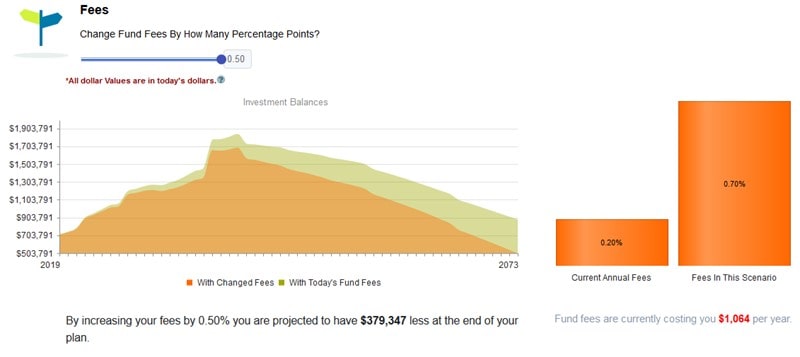
Everything You Need to Know About 401(K) Fees
- Mark Edwards ·
- 0 Comments ·
- January 11, 2019
High mutual fund and Exchange Traded Funds (ETF) fees have been around for a long time. But thankfully the trend is towards lower fees and this is a huge boon to those saving for retirement.
Unfortunately the trend towards lower fees is moving much more slowly in the world of 401(k) plans. Not only that, but many people who invest into 401(k) plans through their jobs have no idea what their fees are on the funds they invest in. The annual fee that most of us pay on our funds can be seen by looking up the fund’s expense ratio. But there is another fee on 401(k) plans that is rarely shown to employees. This is the administrative fee on the plan.
There is a study of 401(k) plans that shows that nearly 75% of people in the plan did not know the fees they are paying and almost half of the people surveyed couldn’t say whether they were paying any fees.
How 401(K) Plan Fees Work
All 401(k) plans have investment funds that charge an annual fee. This fee is paid by the people who invest in the funds and can be found by looking for the expense ratio. There is a lot of great information on the internet these days and most funds’ expense ratios can be found. We like to use the WealthTrace Financial And Retirement Planner to view all of our fund fees, sort by the amount of the fee, and compare vs. other funds to find the funds with the lowest annual cost. You can see a screenshot of this below:

In this example, we have one fund called the Vanguard Health Care ETF. The expense ratio is low at 0.10%. This means that if you have $50,000 invested in this ETF you will pay $50 per year in fund fees. As a comparison, the average for this category of fund charges 1.3%, which means $650 a year in fees. Vanguard really does have the lowest cost funds in the industry.
In addition to paying the annual expense ratio on funds in a 401(k) plan, many employees also pay administrative fees for the plan. Some older plans have a large percent of assets fee that can really take a large bit out of retirement savings over time. Even worse, these fees are very difficult to find and are rarely disclosed.
For those who cannot find out exactly what kind of fees you are paying on your 401(k) plan, make sure you ask Human Resources or whoever is in charge of the plan. You can also ask that they change 401(k) providers if the fees are too high.
How Fees Impact Retirement Portfolios over Time
Compounding is a wonderful thing when it comes to investing. It means our money grows exponentially as long as returns are positive over time. However, compounding works in reverse with fees because these are basically a negative return each year. High fees over time can mean the difference between retiring early or working into your 70s. You can see an example of this below:

This is using a $650,000 investment portfolio. I changed the fees to be just 0.5% higher and you can see that at the end of this person’s life, they have $379,000 less in their portfolio. A relatively small increase in fees can actually cut a $2 million retirement portfolio in half over time.
Choices Inside a 401(K) Plan
When it comes to high fees, it’s actively managed funds that are usually the worst offenders. These funds are known to have annual fees of 1.5% or more. This is inexcusable given that Vanguard (and others) have index funds that charge less than 0.1% per year.
Unfortunately many 401(k) plans only offer actively managed funds as investment choices. This too is inexcusable. If this is the case at your company, let the person in charge know that they need to offer lower cost index funds for the employees.
Target Date Funds Are Being Used More
Target date funds are a great choice for many investors. They are almost always less expensive than actively managed funds and they are reallocated periodically as you get older. As you get older, these funds invest more and more in bonds and less into stocks, which is what you want. They are also well diversified among U.S. stocks, U.S bonds, international bonds, international stocks, and even emerging market stocks.
Rolling over a 401(K) Plan
There is one last piece of advice when it comes to a 401(k) plan. Once you retire, roll it over to an IRA. This way you have thousands of choices for funds to invest in and you will no longer be paying any administrative fees for the 401(k) plan.
